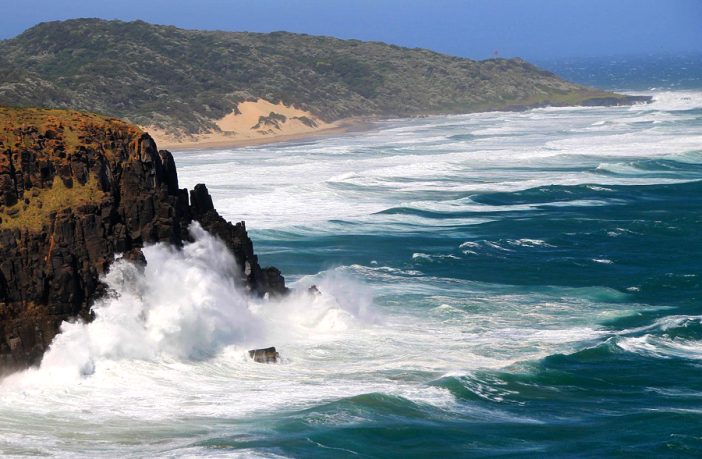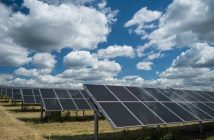- Today, in the Grahamstown High Court in Makhanda, Judge Gerald Bloem considered a second urgent interdict brought to stop Shell’s seismic blasting along South Africa’s Wild Coast.
- While acknowledging the urgency of the matter, Judge Bloem adjourned the seven-hour long hearing after arguments were concluded, reserving his judgment until further notice
- More than 300000 people have already signed an online petition started by Oceans Not Oil Coalition calling on South Africa’s environment minister, Barbara Creecy, Shell and Operation Phakisa to stop the survey.
The Legal Resources Centre (LRC) and Richard Spoor Attorneys brought the application on behalf of the Amadiba, Dwesa-Cwebe, Port Saint Johns and Kei Mouth communities. THese communities are all recognised small scale fishing communities, while the Dwesa-Cwebe community has had their customary rights to fishing recognised. The application follows the loss of a previous urgent interdict application brought by Border Deep Sea Angling Association, Kei Mouth Ski Boat Club, Natural Justice and Greenpeace Africa.
Related news: Planned Seismic Survey by Shell has Kicked up a Storm in South Africa. Here’s an Explainer
Tembeka Ngcukaitobi SC, counsel for the Wild Coast communities and supporting NGOs argued:
- Numerous leading experts confirm that the blasting will cause significant and irreparable harm to marine life in the affected area and will impact the livelihoods, constitutional rights and customary rights (including customary fishing rights) of coastal communities. He noted that only Shell’s Chairperson disputed these experts.
- Shell failed completely to consult with affected communities despite the devastating impact that the seismic blasting will have.
- Shell’s blasting is illegal because they did not obtain an environmental authorisation under the National Environmental Management Act (“NEMA”). He argued that Shell’s argument that MPRDA – the mining legislation – excludes the application of the NEMA is contrived. Moreover, he noted the EMPr itself was defective because communities weren’t consulted. These omissions render Shell’s seismic blasting unlawful and unconstitutional.
Video: Environmental Impacts of Marine Seismic Surveys
Tembeka Ngcukaitobi SC slammed Shell’s inadequate consultation under the MPRDA as “farcical and a complete sham based on exclusion.” He argued that when constitutional rights are at issue, “the balance of convenience favours the applicants. There is no amount of money that can offset loss of constitutional rights.”
In response to Shell’s argument that the communities should have asked Minister Mantashe for help rather than seeking this interdict this urgent relief in court, Tembeka Ngcukaitobi SC said that Minister Mantashe had been “unequivocal” in his stance against the communities: “the regulator is sleeping in the same bed as Shell. Instead of regulating them, he has taken their side.”
Despite expert evidence filed, Shell’s counsel Adrian Friedman, maintained that there is no evidence of harm to marine life, and that communities’ objections are “speculative” and claims of cultural and spiritual harm merely “subjective”. Shell held firm that the EMPr under the MPRDA constitutes an environmental authorisation under NEMA, arguing that “Shell and Impact Africa stand to lose hundreds of millions of Rands, a massive prejudice should be taken into account. The harm to Shell is nothing short of catastrophic.” Finally, he concluded that the litigation against Shell was unreasonable, and insisted that the final matter and determination be concluded today, to avoid further litigation.
Responses:
“What we heard from Shell and Minister Mantashe in Court today demonstrates how far we still have to go to make the lives of rural communities in South Africa visible. The Applicants asked the Court to see Shell’s actions and attitudes for what they are: a flagrant denial of the significance of their identity and their livelihoods which is not only offensive but also unconstitutional.”
“The Applicants accept that their rights must be properly balanced against the rights of Shell to continue exploration. Shell believes no such balancing is necessary, because the communities’ spiritual and cultural rights cannot, they say, be objectively quantified. As to the impact on their livelihoods as fishing communities, Shell simply insisted that there will be no harm done. The expert evidence provided by the Applicants suggested otherwise.”
“Win or lose, I hope this case will change the way multinationals view their duty to engage with affected communities in South Africa.” –Wilmien Wicomb, Attorney at Legal Resources Centre
“It is remarkable that Shell can come to court to say that commercial interests in this case trump the cultural rights and spiritual beliefs of the Wild Coast communities, and simply dismiss the evidence of experts about the harm to marine life, ecology and community livelihoods.” – Melissa Groenink, Attorney and Programme Manager, Natural Justice.
Author: Bryan Groenendaal











